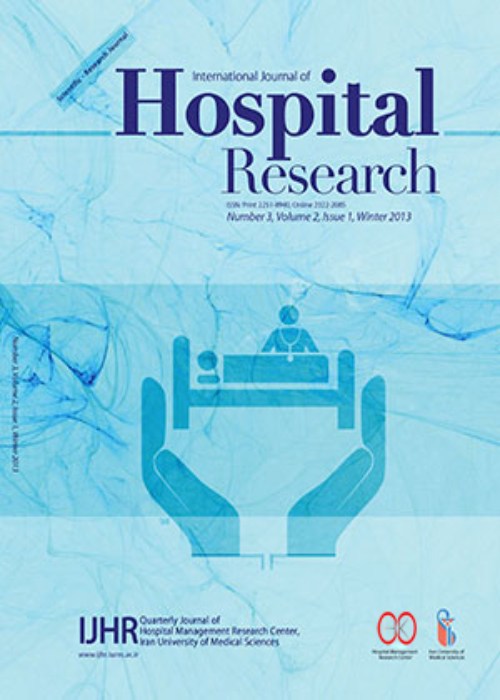Awareness, Attitude, and Practice of Pharmacovigilance among Health Care Professionals in Nigeria: Survey in a Teaching Hospital
Author(s):
Abstract:
Background And Objectives
Pharmacovigilance is central to the control of the menace of adverse drugs reactions. Despite the fact that development of policy and practice framework to improve patients’ safety partly rely on availability of authentic data on pharmacovigilance activities, knowledge about pharmacovigilance activities among healthcare professionals in Nigeria is limited. To help fill this gap, this study explored the awareness, attitude and practice of pharmacovigilance activities among the healthcare professionals in the Nigerian Nnamdi Azikiwe University Teaching Hospital. Methods
A descriptive cross-sectional survey was carried out among healthcare professionals in the Nnamdi Azikiwe University Teaching Hospital, Nnewi. The participants were doctors, pharmacists, nurses and health records officers employed in the teaching hospital. The sample was selected using stratified random sampling. A structured, self-administered questionnaire was used as the survey instrument. Key informant interview was also conducted among hospital’s administrative officers using standard interviewer guide. Descriptive statistics were calculated for the demographic variables. Quantitative data were compared using inferential statistics. Findings
Low level of awareness among the healthcare professionals about pharmacovigilance activities was observed. About half of them, 130 (50.4%), stated that they were not aware of the Nigerian National Pharmacovigilance tool that is used for documenting and reporting of adverse drug reactions. Only about one tenth of the respondents, 35 (13.7%), mentioned that they use this tool for documenting and reporting of adverse drug reactions whereas the majority of them, 220 (86.3%), stated that they had not used the tool. Conclusions
The study indicated that the healthcare professionals in Nnamdi Azikiwe University Teaching hospital, NAUTH (Nnewi) have low awareness about pharmacovigilance. There is also low frequencyof utilization of the Nigeria NPV tool for documentation and reporting of ADRs. Our findings highlight the need for educational and managerial interventions to improve ADRs monitoring and reporting within an all-inclusive pharmacovigilance system in this country.Keywords:
Language:
English
Published:
International Journal of Hospital Research, Volume:2 Issue: 3, Summer 2013
Page:
99
magiran.com/p1305039
دانلود و مطالعه متن این مقاله با یکی از روشهای زیر امکان پذیر است:
اشتراک شخصی
با عضویت و پرداخت آنلاین حق اشتراک یکساله به مبلغ 1,390,000ريال میتوانید 70 عنوان مطلب دانلود کنید!
اشتراک سازمانی
به کتابخانه دانشگاه یا محل کار خود پیشنهاد کنید تا اشتراک سازمانی این پایگاه را برای دسترسی نامحدود همه کاربران به متن مطالب تهیه نمایند!
توجه!
- حق عضویت دریافتی صرف حمایت از نشریات عضو و نگهداری، تکمیل و توسعه مگیران میشود.
- پرداخت حق اشتراک و دانلود مقالات اجازه بازنشر آن در سایر رسانههای چاپی و دیجیتال را به کاربر نمیدهد.
دسترسی سراسری کاربران دانشگاه پیام نور!
اعضای هیئت علمی و دانشجویان دانشگاه پیام نور در سراسر کشور، در صورت ثبت نام با ایمیل دانشگاهی، تا پایان فروردین ماه 1403 به مقالات سایت دسترسی خواهند داشت!
In order to view content subscription is required
Personal subscription
Subscribe magiran.com for 70 € euros via PayPal and download 70 articles during a year.
Organization subscription
Please contact us to subscribe your university or library for unlimited access!


